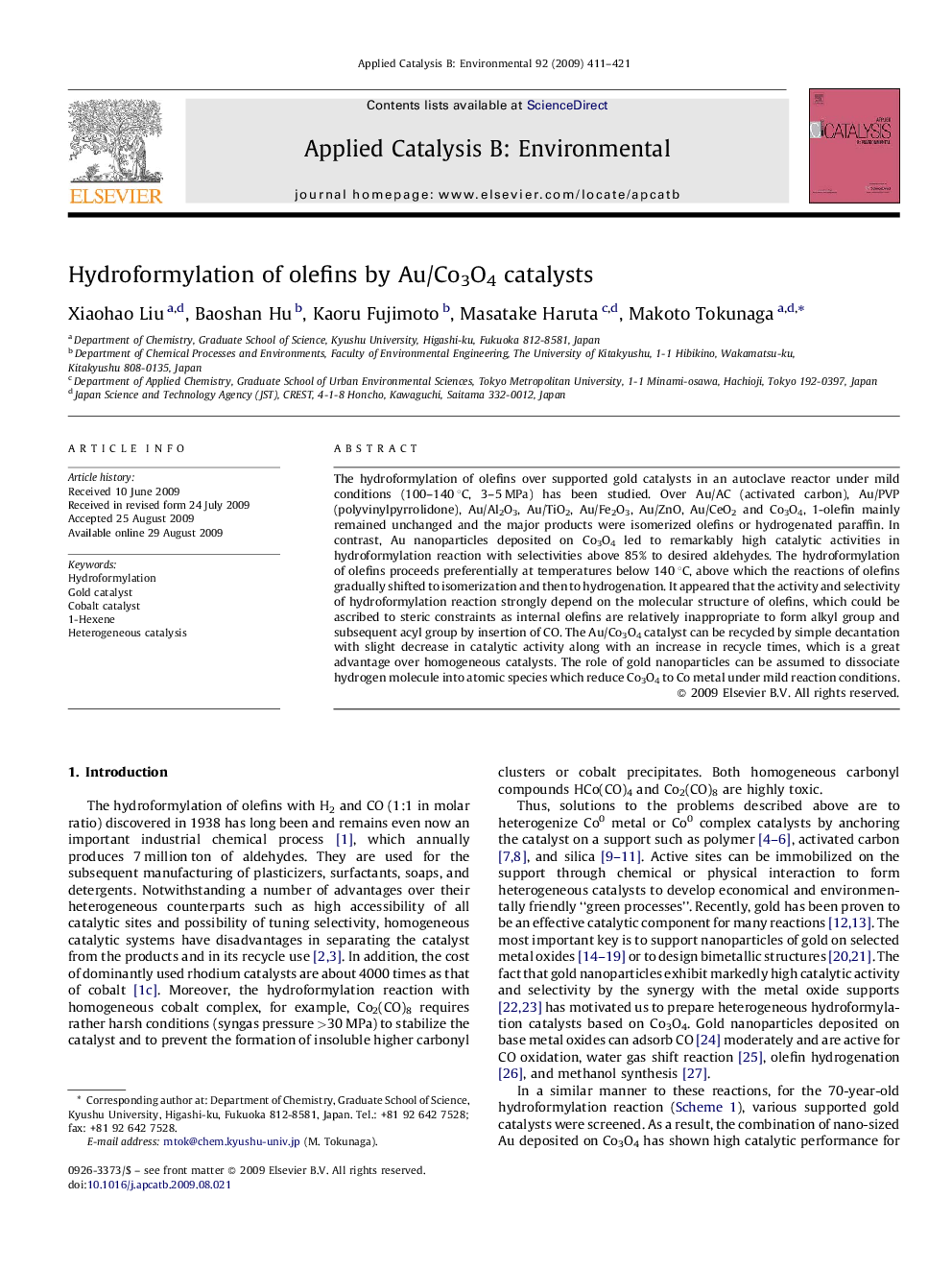| Article ID | Journal | Published Year | Pages | File Type |
|---|---|---|---|---|
| 47579 | Applied Catalysis B: Environmental | 2009 | 11 Pages |
The hydroformylation of olefins over supported gold catalysts in an autoclave reactor under mild conditions (100–140 °C, 3–5 MPa) has been studied. Over Au/AC (activated carbon), Au/PVP (polyvinylpyrrolidone), Au/Al2O3, Au/TiO2, Au/Fe2O3, Au/ZnO, Au/CeO2 and Co3O4, 1-olefin mainly remained unchanged and the major products were isomerized olefins or hydrogenated paraffin. In contrast, Au nanoparticles deposited on Co3O4 led to remarkably high catalytic activities in hydroformylation reaction with selectivities above 85% to desired aldehydes. The hydroformylation of olefins proceeds preferentially at temperatures below 140 °C, above which the reactions of olefins gradually shifted to isomerization and then to hydrogenation. It appeared that the activity and selectivity of hydroformylation reaction strongly depend on the molecular structure of olefins, which could be ascribed to steric constraints as internal olefins are relatively inappropriate to form alkyl group and subsequent acyl group by insertion of CO. The Au/Co3O4 catalyst can be recycled by simple decantation with slight decrease in catalytic activity along with an increase in recycle times, which is a great advantage over homogeneous catalysts. The role of gold nanoparticles can be assumed to dissociate hydrogen molecule into atomic species which reduce Co3O4 to Co metal under mild reaction conditions.
